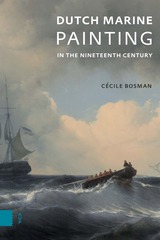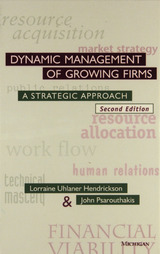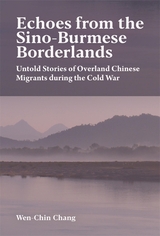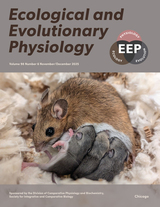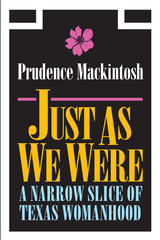
When a Texas debutante bows her forehead to the floor in the famous "Texas dip," society columnists all across the country speculate interminably over what it is that sets Texas women apart. But really, how could they know? Even women born and bred in Texas can't always answer that question.
Prudence Mackintosh comes very close to an answer, though, in this endlessly entertaining book. Writing with both a wry sense of humor and an insider's compassion, she offers us a fascinating look into the world of privileged, educated, well-married, well-connected, and mostly wealthy white Texas women.
What really sets these women apart, Ms. Mackintosh tells us, is the comfortable yet demanding path they follow from their idyllic girlhoods to prominent positions in society. In thirteen essays, some of which originally appeared in Texas Monthly magazine, she charts the way stations that mark this path: summer camps in the Texas Hill Country, exclusive private schools like Dallas' Hockaday, sorority membership, and acceptance into the Junior League.
Prudence Mackintosh has been both an outsider and an insider in this privileged world, and her observations are shot through with wit and real insight. Just As We Were may not be the final word on elite Texas women, but no other book has described their world with greater irony or accuracy.
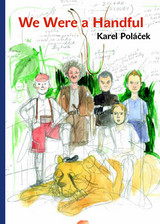
A favorite work of Czech humor, We Were a Handful depicts the adventures of five boys from a small Czech town through the diary of Petr Bajza, the grocer’s son. Written by Karel Poláček at the height of World War II before his deportation to Auschwitz in 1944, this book draws on the happier years of Poláček’s own childhood as inspiration. As we look upon the world through Petr’s eyes, we, too, marvel at the incomprehensible world of grownups; join in fights between gangs of neighborhood kids; and laugh at the charming language of boys, a major source of the book’s humor. This translation at last offers English-language readers the opportunity to share in Petr’s (and Poláček’s) childhood and reminds us that joy and laughter are possible even in the darkest times.
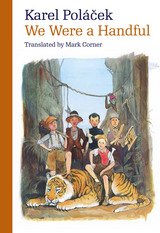
A favorite work of Czech humor, We Were a Handful depicts the adventures of five boys from a small Czech town through the diary of Petr Bajza, the grocer’s son. Written by Karel Poláček at the height of World War II before his deportation to Auschwitz in 1944, this book draws on the happier years of Poláček’s own childhood as inspiration. As we look upon the world through Petr’s eyes, we, too, marvel at the incomprehensible world of grownups; join in fights between gangs of neighborhood kids; and laugh at the charming language of boys, a major source of the book’s humor. This translation at last offers English-language readers the opportunity to share in Petr’s (and Poláček’s) childhood and reminds us that joy and laughter are possible even in the darkest times.
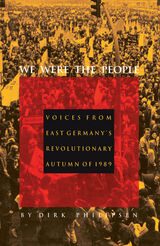
The drama We Were the People recreates is remarkable for its richness and complexity. Here are citizens organizing despite threats of bloody crackdowns; party functionaries desperately trying to survive as time-honored political prerogatives crumble beneath their feet; an oppressed people discovering the possibilities of power and freedom, but also the sobering strangeness of new political realities. With their success, East Germans encountered the overpowering might of thie Western neighbor--and stand perplexed before the onslaught of real estate agents, glossy consumer ads, political professionalism--and the discovery that a lifetime of social experience has suddenly lost all usable context. They became, in the words of one participant, a people "without biography."
Over all the recent events and unlikely turns recounted here, one thing remains paramount: the sweep of the initial democratic conception that animated the East German revolution. We Were the People brings this movement to life in all its drama and detail, and vividly recovers a historic moment that altered forever the shape of modern Europe.
Some Voices of the People
Bärbel Bohley/ "Mother of the Revolution"
Rainer Eppelmann/ Protestant Pastor
Klaus Kaden/ Church Emissary to the Opposition
Hans Modrow/ Former Communist Prime Minister
Ludwig Mehlhorn/ Opposition Theorist
Ingrid Köppe/ Opposition Representative
Frank Eigenfeld/ New Forum
Harald Wagner/ Democracy Now
Sebastian Pflugbeil/ Democratic Strategist
East German Workers
Cornelia Matzke/ Independent Women's Alliance
André Brie/ Party Vice-Chairman
Gerhard Ruden/ Environmental Activist
Werner Bramke/ Party Academic
READERS
Browse our collection.
PUBLISHERS
See BiblioVault's publisher services.
STUDENT SERVICES
Files for college accessibility offices.
UChicago Accessibility Resources
home | accessibility | search | about | contact us
BiblioVault ® 2001 - 2026
The University of Chicago Press


